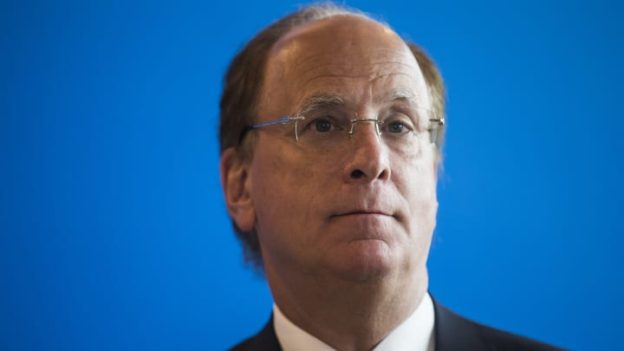As the coronavirus pandemic stretches into 2022, BlackRock CEO Larry Fink is predicting that some of the workplace changes spurred by the crisis – including flexible schedules and a renewed focus on employee mental health – will be permanent.
“No relationship has been changed more by the pandemic than the one between employers and employees,” Fink writes in his annual letter to CEOs, published on Tuesday. He points to the historic quit rates and the wage growth we’re seeing in the United States as positive signs of “workers seizing new opportunities” as well as “their confidence in a growing economy.”
Workers aren’t just looking for new opportunities now either – they’re demanding more from their employers in benefits and work-life balance, especially flexible work arrangements and work that aligns with their values.
“As companies rebuild themselves coming out of the pandemic, CEOs face a profoundly different paradigm than we are used to,” Fink says in his letter. “Companies expected workers to come to the office five days a week … mental health was rarely discussed in the workplace … and wages for those on low and middle incomes barely grew.”
Now, he writes, “That world is gone.” The pandemic has also highlighted the importance of discussing racial equity, child care and mental health in the workplace, Fink notes. According to research from Glassdoor published in September, the percentage of reviews on their website discussing burnout jumped 100% during the pandemic, while the proportion of employees mentioning mental health on Glassdoor increased by 143%.
Fink argues that such calls for a more empathetic, employee-centric workplace are a core feature of “effective capitalism” as they create more competition for talent and push companies to create “better, more innovative environments for their employees” that will ultimately lead to higher profits.
Companies who embrace such changes can expect better retention and revenue, according to BlackRock research. But those who do not adjust to the new work landscape or ignore their employees’ desires do so “at their own peril,” Fink writes. “Turnover drives up expenses, drives down productivity, and erodes culture and corporate memory,” he warns.
CEOs and other business leaders should reflect on their business practices at the start of the new year, Fink suggests, by asking themselves the following questions:
- What are you doing to deepen the bond with your employees?
- How are you ensuring that employees of all backgrounds feel safe enough to maximize their creativity, innovation and productivity?
- How are you ensuring your board has the right oversight of these critical issues?
“Where and how we work will never be the same as it was,” he concludes. “How is your company’s culture adapting to this new world?”
https://www.cnbc.com/amp/2022/01/18/blackrock-ceo-shares-trends-that-will-shape-world-of-work-in-2022.html





